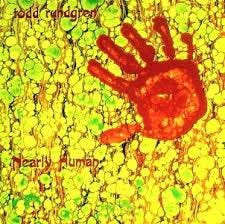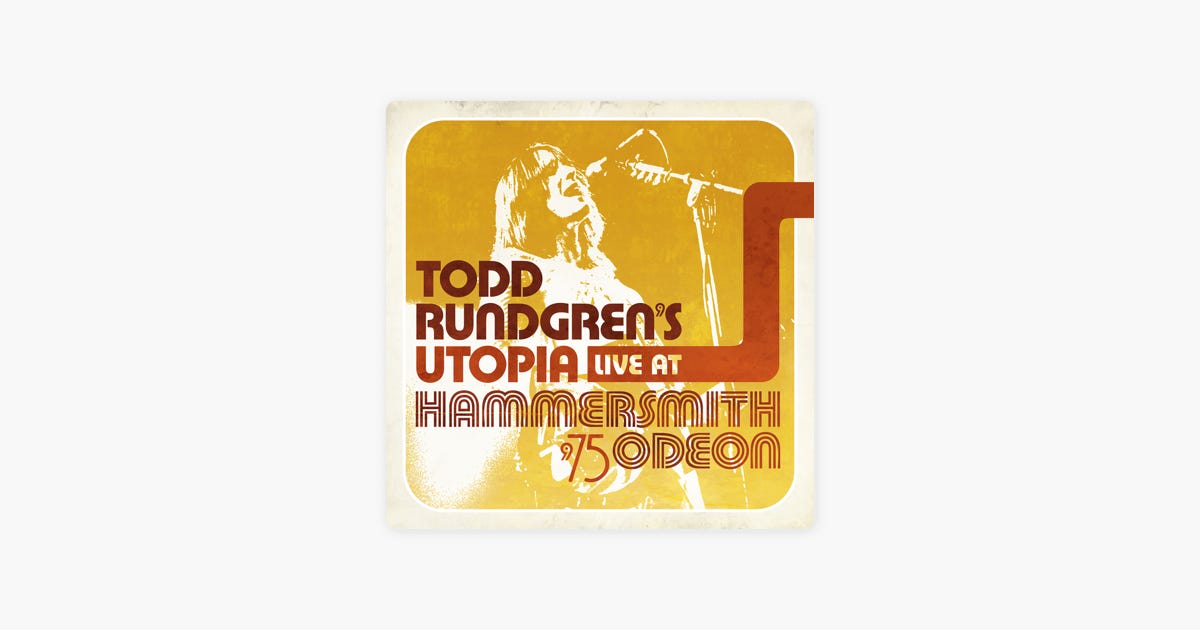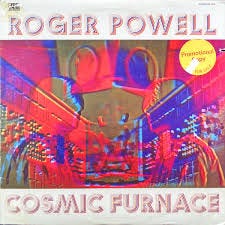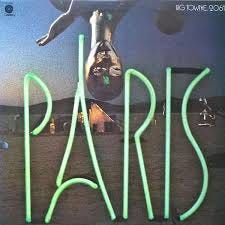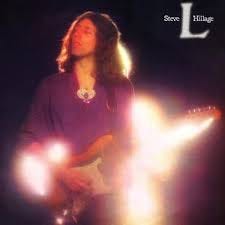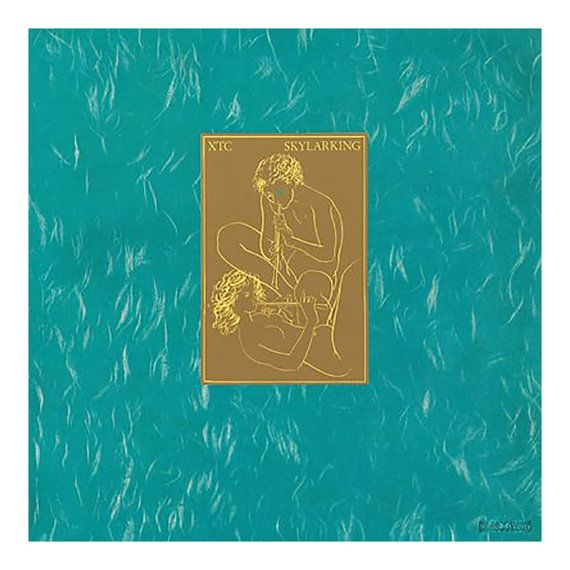Playlist: The Todd-Adjacent Universe
A new remastering of Nearly Human sparks other discoveries....
PLAYLIST HERE:
On February 12, Todd Rundgren’s lavish 1989 record Nearly Human will resurface – with a long-overdue remastering from the Original Source Tapes and a few bonus tracks.
The project is an accessible point of entry for the Rundgren-curious who might be intimidated by this prolific artist’s sprawling discography. It’s all about songs, not extended Utopia jams (though members of a reconstituted Utopia were involved). Tracked live in the studio, it leads off with the blazing “The Want of a Nail,” a rock-revue stomp sparked by singer Bobby Womack, and features contributions from members of the Tubes, Bourgeois Tagg and other artists Rundgren produced. Oh, and it includes several Rundgren compositions that belong on lists of his best work – among them “The Waiting Game” and “Can’t Stop Running.”
As strong as it is and as ambitious as it is, Nearly Human has suffered from a tightly controlled, almost airless ‘80s sonic profile reminiscent of those solo records where Rundgren makes every last sound himself. The new version is more expansive, an invitation into the mind of a pop genius who, give or take a Grand Funk record, has authored or midwifed a staggering amount of norm-defying pop music.
Hearing “The Want of a Nail” inspired a detour-filled excursion into the realm of the Todd Adjacent. For purposes of context, I started with a storied live slice of Utopia, from Live at Hammersmith Odeon ’75 – a version of “Heavy Metal Kids” that displays the band’s unusual dexterity: The verses offer an authoritative, locked-down version of strutty mid-‘70s rock, and just when that’s getting predictable along comes a high-drama solo with lots of the old Utopia polyrhythm.
From there, the next stop was easy: Utopia keyboardist (and longtime Keyboard Player columnist) Roger Powell’s dizzying 1973 Cosmic Furnace. A feast of imaginative synth programming, this album translates the Utopia jamming aesthetic to a solo-auteur canvas. Yes, every track is a suite; that’s not a negative when the composer interpolates so many interesting melodic ideas. The music here tells big stories about the ways rock musicians were processing the fusion and prog upheavals of the early ‘70s – there are Mahavishnu-like moments, and passages that recall the simmering openness of electric Miles Davis after Bitches Brew.
Then I looked for musicians who were involved in the early Rundgren solo successes (Runt, Something/Anything) and ran across as strange artifact involving drummer Hunt Sales, the son of comic Soupy Sales. Hunt was on both of those records and the early prog-rock incarnation of Utopia, and was part of the band on Iggy Pop’s Lust For Life. In 1976, Sales joined a trio called Paris, led by ex-Fleetwood Mac guitarist Bob Welch, for its second LP Big Towne 2061. It’s a lean, terse rock record with hooks in the shadow of Rundgren that are nearly washed out by excessive vocal reverb. But just about every track has a great singable refrain.
Then I went down a different Rundgren rabbit hole, involving bassist and singer Kasim Sulton, who was part of Utopia for much of the 1970s and sings lead on its hit, “Set Me Free.” Sulton’s solo work is of the earnest singer-songwriter school, but among the records he anchored is Steve Hillage’s covers-heavy second album L, which was produced by Rundgren. (For a taste of Sulton’s singer/songwriter era, there’s “The Clocks All Stopped” from the 2014 release 3, which also benefits from Rundgrens’s contribution.)
Rundgren’s work as a producer has sometimes seemed parallel to his endeavor as an artist, and sometimes veered wildly into unusual zones. As an example of the former, I sought out Yoyo, the sparkling power pop Bourgeois Tagg record from 1987, for its single “I Don’t Mind At All.” It looks like it once lived on Spotify but in what’s becoming an increasing phenomenon, it’s been scrubbed from listings and playlists; it’s worth seeking out from other sources.
That led, inevitably, to another landmark: XTC’s 1986 Skylarking, the British trio’s most acclaimed and commercially successful outing. By all accounts, the working relationship between Rundgren and primary songwriter Andy Partridge was turbulent – in an interview with Uncut magazine, Partridge described the atmosphere at the sessions as “like one bunker with two Hitlers.” Subsequent to the album’s release, both sides expressed some degree of satisfaction with the final product, however, and it is a credit to both that you can’t hear any studio acrimony on the tracks: Skylarking is a concentrated dose of pop exuberance rendered by experts in songcraft.
I ended there to stick to the mandate that Echo Locator’s playlists offer an introductory surface look at a scene, not a deep dive. Which you could easily do: The various Rundgren rabbit holes are all deep, with many side roads and detours.
Yes, we have a fancy digital suggestion box. Share your favorite Underloved/Overlooked records here: echolocator@gmail.com.
Please consider subscribing (it’s free!). And…..please spread the word! (This only works via word of mouth!)



